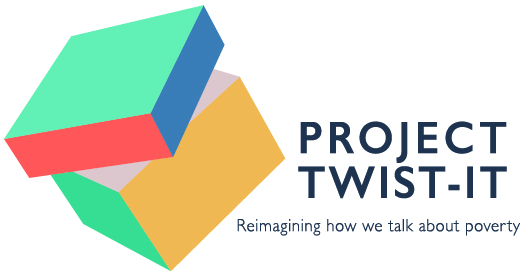PTI talked with Ruth Lister about poverty in the UK.
You’ve written a 2nd edition of your book, Poverty. Why now?
Poverty has taken on a new saliency as a consequence of the pandemic, which has tipped many over the economic cliff and has exposed and aggravated wider economic insecurity. For the first time ever, poverty (and inequality) has overtaken the NHS in the Ipsos Mori index of issues of concern to the British public (at fourth in the list with nearly 1 in 5 mentioning it as a concern). Understanding what poverty means is the first step to its eradication and I hope the book will help more people gain an understanding, in particular from the perspective of people in poverty themselves.
Can you summarise your key conclusions?
We have to understand poverty not just as a disadvantaged and insecure economic condition but also as a shameful and corrosive social relation in which ‘the poor’ are treated as other and are dehumanised. Powerlessness, lack of voice, loss of dignity and respect are key aspects. The 2nd edition deepens our understanding of this and also pays greater attention to economic insecurity and its material and psychological effects.
Child poverty in particular has become a major issue during the pandemic – why, when there was once a major effort to eliminate it – is child poverty in a dire situation?
The effort to eliminate child poverty came to an end when Labour lost power in 2010. There is no longer a child poverty strategy. And we are seeing the consequences in not just an increase in the number of children living in poverty but also its intensification as more are pushed into deep poverty. Just the other day the outgoing Children’s Commissioner called it a crisis we can’t keep ignoring.
How big a role have austerity policies played in entrenching poverty?
Huge! The real value of most benefits for working age people and children has been cut significantly since 2010 including as a result of a four year freeze [IN WHAT?]. Local authority services including those supporting disadvantaged children have been cut back. Overall the impact of austerity has fallen disproportionately on those with the narrowest shoulders, least able to bear the burden.
What policies could be put in place immediately that would alleviate poverty, including child poverty?
The most urgent action, supported not just by a wide range of children’s and anti-poverty organisations but also former Secretaries of State at the DWP, must be to retain the welcome £20 uplift to universal credit introduced at the start of the pandemic (and a lump sum as widely predicted is not a substitute). But this is just the bottom line. In addition, the uplift needs to be extended to ‘legacy’ and related benefits paid to disabled people, the unemployed and carers. And support for children needs to be improved as there has been no increase in social security support for children during the pandemic, even though the evidence indicates they are being hit hardest by its economic fallout. For these policies to be fully effective the government need to lift the benefit cap and the two-child limit.
What is needed in the longer term?
In addition to root and branch reform of the social security system so that it provides genuine economic security, we need a comprehensive anti-poverty strategy that includes wages and access to employment, housing and services, involving local as well as national government and also employers and civil society. The development of such a strategy needs to involve people with experience of poverty.
How big a role has the political narrative around ‘welfare’ as handouts that are ‘undeserved’, and poverty as self-inflicted, played in suppressing public support for anti-poverty policies?
A big role, including under the last Labour government when the language they used undermined their ability to build public support for their own anti-poverty strategy. But this has been very much amplified since 2010 in a deliberate attempt to justify social security cuts. It’s one reason why I argue that we shouldn’t call benefits ‘welfare’, which following the term’s American usage implies assistance for ‘them’. Instead we should revert to talking about social security in order to underline that the system is there so that society can ensure financial security for us all.
Why has the demonization of the poorest in our society been so ‘successful’?
Partly for historical reasons, reaching back centuries. Partly because the demonisation of ‘the poor’ allows the rest of us to distance ourselves from them and to blame them for their poverty. And it enables us to take security in our identity as not-poor, and, in the case of the better off, to legitimate privilege.
How can we change that and move toward a more equal, inclusive society?
In the book, I argue that a first step is to shift the narrative to one of human rights, incorporating the agency of people living in poverty and their demands for voice and power – listening to people with experience of poverty themselves. This points to what I call a ‘politics of recognition&respect’ as well as a politics of redistribution. Such a politics needs to be integrated into a broader vision of a good society that addresses also intersecting inequalities and environmental injustice, which is intertwined with socio-economic injustice.
Ruth Lister, (Baroness (Ruth) Lister of Burtersett) is a Labour member of the House of Lords and an Emeritus Professor of Social Policy at the School of Social Sciences and Humanities, Loughborough University. She has a long and distinguished career researching poverty. The second edition of her book, Poverty (first published in 2004) is now available.
“We have to understand poverty not just as a disadvantaged and insecure economic condition but also as a shameful and corrosive social relation in which ‘the poor’ are treated as other and are dehumanised”


